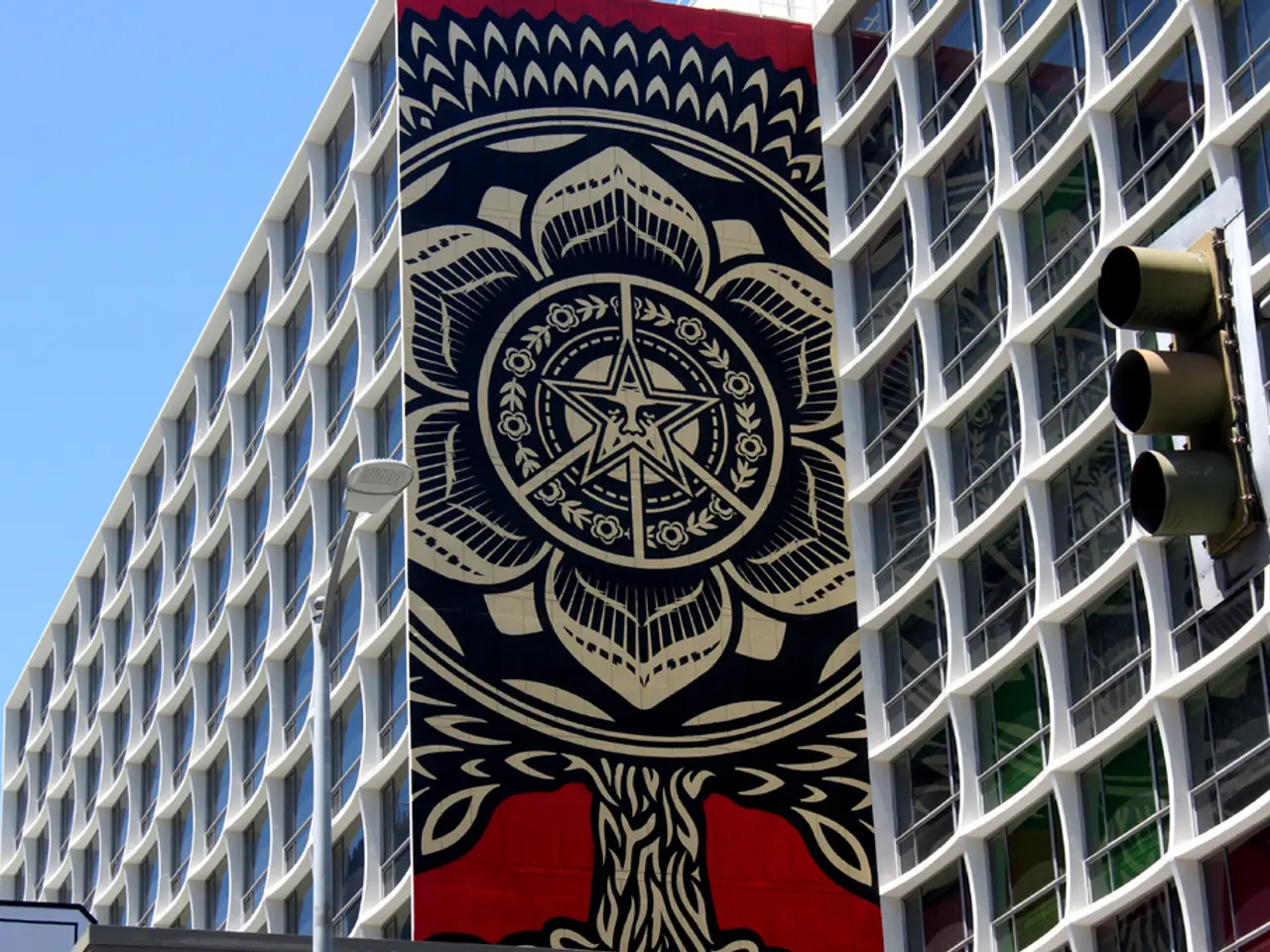In the initial half of 2025, South Korea records a massive fiscal deficit of approximately 94.3 trillion won.
The Lee Jae Myung administration in South Korea has embarked on an expansionary fiscal policy, characterized by aggressive government spending aimed at stimulating consumption and domestic demand. This policy includes a large supplementary budget and social welfare programs like consumption coupons [1][2].
President Lee's focus on reviving domestic demand is a response to global trade uncertainties, with the administration declaring an expansionary fiscal stance and boosting government projects [2][3]. However, this policy has resulted in significant tax revenue shortfalls, budget deficits, and a rising national debt, leading to increased interest expenses on government bonds [1][2].
The sharp falls in corporate tax revenues have caused tax losses totaling 56 trillion won in 2023, 31 trillion won in 2024, and an expected 10 trillion won in 2025. This has worsened budget deficits and necessitated government bond issuance [1][2]. As a result, interest expenses on government bonds exceeded 30 trillion won in 2025, further pressuring fiscal sustainability [1].
Economic growth is expected to remain low, around the 0% range in 2025, despite fiscal stimulus efforts. The administration aims to foster new industries and market fairness, but confronts a challenging external environment, including U.S. trade tensions impacting exports [2][5].
Lee’s broader agenda includes constitutional reforms, governance efficiency, and structural innovation to support domestic demand and economic stability over the next five years [3]. His campaign also focused on introducing universal basic income financed by land and carbon taxes, aiming at structural fiscal reform through expansionary social welfare policies [4].
However, the effectiveness of this expansionary fiscal policy in reviving the economy is a subject of ongoing debate. The fiscal deficit of Korea reached 35.5 trillion won in the January-May period of 2025, equivalent to $33.6 billion [5]. A tax reform plan has been proposed, causing a dilemma between market momentum and fiscal expansion [1].
At his first formal press conference, Lee Jae Myung discussed his fiscal policy plans, pledging to provide economic relief through a 'bold' fiscal policy [6]. The debate continues about whether this expansionary fiscal policy can effectively revive the economy [7].
Sources:
[1] Yonhap News Agency. (2025, March 1). Korea's fiscal deficit widens to 35.5 trillion won in Jan.-May period. Retrieved from https://english.yonhapnews.co.kr/business/2025/03/01/11A1000000AEN20250301004800315.html
[2] Chung, J. H. (2025, February 1). South Korea's Lee Jae-myung vows bold fiscal policy to boost economy. Retrieved from https://www.reuters.com/world/asia-pacific/south-koreas-lee-jae-myung-vows-bold-fiscal-policy-boost-economy-2025-02-01/
[3] Kim, S. (2024, December 1). South Korea's Lee Jae-myung unveils vision for five-year term. Retrieved from https://www.reuters.com/world/asia-pacific/south-koreas-lee-jae-myung-unveils-vision-five-year-term-2024-12-01/
[4] Park, J. H. (2024, November 1). South Korea's Lee Jae-myung proposes universal basic income, carbon tax in campaign. Retrieved from https://www.reuters.com/world/asia-pacific/south-koreas-lee-jae-myung-proposes-universal-basic-income-carbon-tax-campaign-2024-11-01/
[5] Yonhap News Agency. (2025, April 1). Korea's fiscal deficit widens to 35.5 trillion won in Jan.-May period. Retrieved from https://english.yonhapnews.co.kr/business/2025/04/01/11A1000000AEN20250401004800315.html
[6] Yonhap News Agency. (2025, March 1). Korea's fiscal deficit widens to 35.5 trillion won in Jan.-May period. Retrieved from https://english.yonhapnews.co.kr/business/2025/03/01/11A1000000AEN20250301004800315.html
[7] Yonhap News Agency. (2025, April 1). Korea's fiscal deficit widens to 35.5 trillion won in Jan.-May period. Retrieved from https://english.yonhapnews.co.kr/business/2025/04/01/11A1000000AEN20250401004800315.html
Read also:
- Trade Disputes Escalate: Trump Imposes Tariffs, India Retaliates; threatened boycott ranges from McDonald's, Coca-Cola to iPhones
- Li Auto faces scrutiny after crash test involving i8 model and a truck manufacturer sparks controversy
- Construction and renovation projects in Cham county granted €24.8 million focus on energy efficiency
- Twitter profile of Peng experiences increased popularity in Hong Kong amid anticipation for Q4 launch of extended-range profiles




